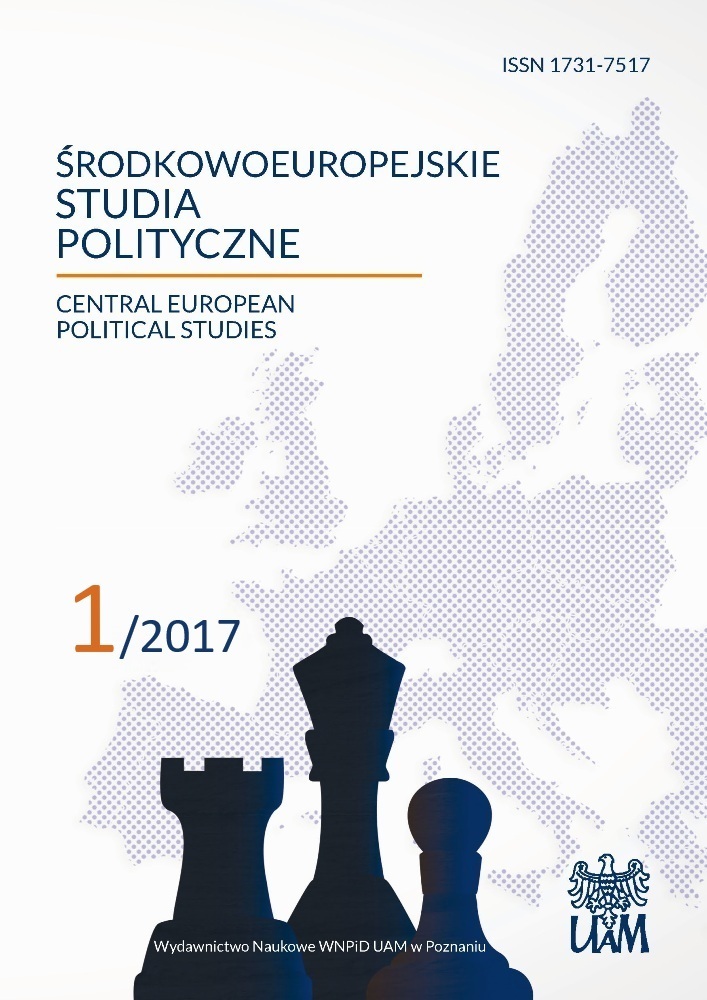Abstract
The authors raise questions about the forms and types of public activity of Kurds in Poland during the last half-century, the impact of the political transformation on this activity, and the similarities and differences between the activities of Kurdish minorities in Poland and in Western countries. On the basis of an analysis of documents and academic studies, as well as examining the organizations described, the authors point to the demographic differences between Kurdish minorities in Poland and in the West, the advancing integration of Kurdish public activity with Polish public life and, finally, the inability to use the social capital of members of this minority for achieving common, long-term goals.
References
Agace, T. Borde, Z. Dengi, I. Leisle (1999), HINBUN. Internationales Bildungs- und Beratungszentrum fur Frauen und ihre Familien. Neues erfahren von der Arbeit mit kurdischen Frauen zur interkulturellen Offnung, Concept Verlag, Berlin.
Başer B., Swain A. (2011), Stateless Diaspora Groups and Their Repertoires of Nationalist Activism in Host Countries, „Journal of International Relations”, nr 8(1).
Belçim G. Ö. (2014), Where is Home? Re-visioning „Kurdistan” and „Diaspora” in Kurdish Novelistic Discourse in Sweden, „Nordic Journal of Migration Research”, nr 4(2).
Demir I. (2012), Battling with „Memleket” in London: The Kurdish Diaspora’s Engagement with Turkey, „Journal of Ethnic and Migration Studies”, nr 38(5).
Dzięgiel L. (1992), Węzeł kurdyjski. Kultura. Dzieje. Walka o przetrwanie, Universitas, Kraków.
Giedz M. (2002), Węzeł kurdyjski. (Kurdish Knott, reportages), Wydawnictwo Dialog, Warszawa.
Giedz M. (2010) Kurdystan bez miejsca na mapie, Wydawnictwo Bernardinum, Pelplin.
Grzegrzółka E. (2013), Organizacje migranckie w Polsce. Działalność i potrzeby, „Analizy, Raporty, Ekspertyzy”, nr 4, Stowarzyszenie Interwencji Prawnej, Warszawa.
Holgate J., Keles J., Pollert A., Kumarappen L. (2012), Workplace Problems Among Kurdish Workers in London: Experiences of an ‘Invisible’ Community and the Role of Community Organisations as Support Networks, „Journal of Ethnic and Migration Studies”.
Jomma F. (2001), Kurdowie i Kurdystan (Problemy diaspory kurdyjskiej), Wydawnictwo L&L, Gdańsk.
Jomma F. (2004), Narodziny, wesela i pogrzeby w tradycji Kurdów syryjskich, w: „International conference on Kurdish studies, 17–19 may 2004/Praca Komisji Orinetalistycznej – Polska Akademia Nauk, Oddział w Krakowie” nr 25, red. A. Krasnowolska, M. Rzepka, Polish Academy of Science Press, Kraków.
Jomma F. (2009), Kwestia kurdyjska w Iraku: przeszłość, teraźniejszość, przyszłość, w: Polityczne wymiary etniczności, red. M. Mieczkowska, D. Scholze, Wydawnictwo DANTE, Kraków.
Jomma F. (2010), Kurdowie w Syrii: aspiracje i oczekiwania, w: Kurdowie i Kurdystan iracki na przełomie XX i XXI wieku, red. A. Abbas, P. Siwiec, Wydawnictwo Naukowe UAM, Poznań.
Jomma F. (2014), Stosunek mniejszości etnicznych, narodowych i religijnych do wydarzeń Arabskiej Wiosny w Syrii, „Przegląd Politologiczny”, http://przeglad.amu.edu.pl/wp-content/uploads/2014/05/pp-2014-1-273-282.pdf, 13.03.2016.
Jomma K. (2006), Police to moje miasto, „Nowe Police. Bezpłatny Miesięcznik Nowej Postawy Obywatelskiej”, listopad, nr 05, www.misilo.pl/gazeta/nowepolice05.pdf, 13.03.2016.
Khalid K., Magnus D. (2014), Diaspora Formation Among Kurds in Sweden, „Nordic Journal of Migration Research”, nr 4(2).
Kromolicka B. (2009), W enklawach działania społecznego. Soroptymistki w Polsce, w: Enklawy życia społecznego, red. I. Machaj, L. Gołdyka, Wydawnictwo Naukowe Uniwersytetu Szczecińskiego, Szczecin.
Linka A. (2014), Służba społeczna wobec osób odmiennych kulturowo na Pomorzu Zachodnim a latach 1945–1991, „Praca Socjalna. 1”, Wydawnictwo Garmond, Kazuń Nowy.
Lötzer R., Rüdiger G. (1998), Kurdischer Alltag in Berlin – Geschichte und Gegenwart, w: R. Lötzer, G. Sayan, Kurden in Berlin”, R + V Verlag, Berlin.
Maow A. (2010), Kurdyjska diaspora, w: Acta Politica nr 23. Zeszyty Naukowe Uniwersytetu Szczecińskiego nr 615, red. M. Drzonek, J. Mieczkowski, Wydawnictwo Naukowe Uniwersytetu Szczecińskiego.
McGee T. (2014), The Stateless Kurds of Syria: Ethnic and National Identity, „Tilburg Law Review”, nr 19 (1–2).
Piłat A. (2013), Badanie jakościowe liderów społeczności migrantów azjatyckich. Raport cząstkowy, Instytut Spraw Publicznych, Warszawa.
Toivanen M., Kivisto P. (2014), Homing Desire at the Juncture of Place and Transnational Spaces: The Case of Young Kurds in Finland, „Nordic Journal of Migration Research”, nr 4(2).
Umut E. (2013), Kurdish Migrant Mothers in London Enacting Citizenship, „Citizenship Studies”, nr 17(8).
Wahlbeck O. (2012), The Kurdish Refugee Diaspora in Finland, „Diaspora Studies”, nr 5(1).
Zięba M. St. (2008), Etyczny wymiar sytuacji migranta: rola państwa, w: Migracja zarobkowa do Włoch. Próba podejścia interdyscyplinarnego, red. D. Bryk, B. Rożnowski, M. St. Zięba, Oficyna Wydawnicza El-Press, Lublin.
Źródła internetowe:
http://www.kurdishstudies.pl/?pl_maria-paradowska,142, 13.03.2016.
Konstytucja Rzeczypospolitej Polskiej z dnia 2 kwietnia 1997, http://isap.sejm.gov.pl/DetailsServlet?id=WDU19970780483, 13.03.2016.
http://www.tolerancja.pl/?kurdyjskie-centrum-informacji-i-dokumentacji-wkrakowie, 174, 13.03.2016.
http://poland.gov.krd/?lang=pl, 13.03.2016.
https://mojepanstwo.pl/dane/krs_podmioty/588554,fundacja-kurdyjsko-polska#wi-%C4%99cej, 13.03.2016.

